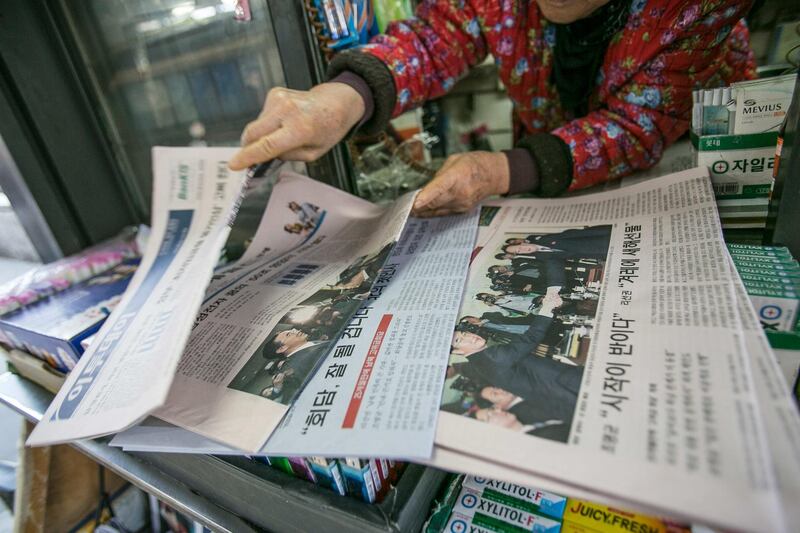You’ve probably heard friends and colleagues saying something like: “I don’t believe anything that organisation says; they’re just a mouthpiece for those guys who fund them.”
Controversial topics such as US presidential politics, UK Brexit, and Middle East conflicts have left many people searching for “objective” sources of information, and denouncing a multitude of media and think tank outlets as being intellectual mercenaries. Are there any useful maxims for dealing with biased reporting?
A principle that seems to be forgotten these days is that the presence of a conflict of interest does not mean that the reporting is so biased that it is useless. In fact, people who dismiss a report without even taking the time to read it are often guilty of laziness at best, and vindictiveness at worst. The example of scientific research helps to illustrate this.
The majority of the world’s academic researchers work in universities with public funding. However, many rely on funding from private sources that can create conflicts of interest – for example the renewable energy companies funding research on solar power, or tobacco companies financing studies on electronic cigarettes. And a large proportion of global academic research is conducted by the in-house researchers of pharmaceutical companies or chemicals manufacturers. Does their research immediately get consigned to the dustbin?
No – what happens is that they clearly and systematically declare their conflicts of interest at the start of their published papers. Readers are then free to adjust their inferences based on the information, keeping in mind several factors.
First, to what extent is the information being presented open to distortion? A scientist analysing a data set that only they have access to is very different to a mathematical proof: in the former case, the scientist can fabricate a report, and nobody would know for sure; while in the latter case, their hands are tied, since the veracity of their argument can be checked just by reading the paper.
________________
Read more:
Economics 101: Gulf states can harness population growth to their advantage
Economics 101: Saudi lifting cinema ban can help boost region’s entertainment sector
________________
In terms of mainstream news, readers must distinguish between The Wall Street Journal, for instance, claiming that "select insiders" are confident that stock prices will rise, and the Journal claiming that today's price is a record high.
Second, in the event the information can be verified subsequently, to what extent do its sources have concerns about their reputations? In the scientific community, there is basically a one-strike-and-you-are-out policy: anyone caught behaving fraudulently is defenestrated from the profession, losing their livelihood. For a tenured full professor, that's a huge punishment to dissuade most from blatant fraud, but for a your doctoral student looking for a job, it might be a risk worth taking, since the alternative is unemployment.
This system works reasonably well in science. Where conflicts of interest are potentially more problematic, according to the factors above, scholars will be more sceptical, and they will dedicate more resources to third-party verification via replication studies. But they won’t terminally and pre-emptively dismiss the research as being biased just based on the presence of a potential conflict of interest.
Yet in the media and think tank world, we often see extremely cavalier dismissals of a report or study because a potential beneficiary of the conclusions is funding it. In some cases, this represents a strategic attempt to discredit an unfavourable conclusion, even if the conclusion might be sound.
In fact, a huge red flag is when a critic focuses their diatribe on the funding, rather than highlighting the components of the analysis that they disagree with, and pointing out how conflicts of interest may have played a role in those specific cases.
The scientific community also tells us about the reverse situation. Just as financial conflicts of interest do not imply useless information, the absence of financial conflicts does not guarantee useful information. Many think tanks and media outlets like to advertise their diverse funding as implying their relative impartiality but, in fact, factors such as ideology, ethnic/religious affiliation, nationalism, or even deep-seated friendships can create much bigger bias than any financial stake.
I am purposely shying away from specific examples because I myself don’t want to be pigeon-holed as being an apologist for one side or another. I have seen plenty of dismissals of people’s valuable analyses based on lazy and/or strategic references to funding sources, with all sides guilty of this tactic. Similarly, I have seen a naive willingness to accept the conclusions of those who superficially appear to not suffer from a financial conflict of interest, without applying an objective level of scrutiny and scepticism.
The main point I wish to convey is that there is no substitute for reading a report or news item, and responding to the content therein. Potentially biased does not imply actually biased, actually biased does not imply useless, and financially unbiased does not imply actually unbiased.
We should be aggressive toward those who are exposed to conflicts of interest; but we should be equally aggressive toward those who denigrate the work of others based on conflicts of interest without actually addressing the content.
Omar Al-Ubaydli @omareconomics is a researcher at Derasat, Bahrain






